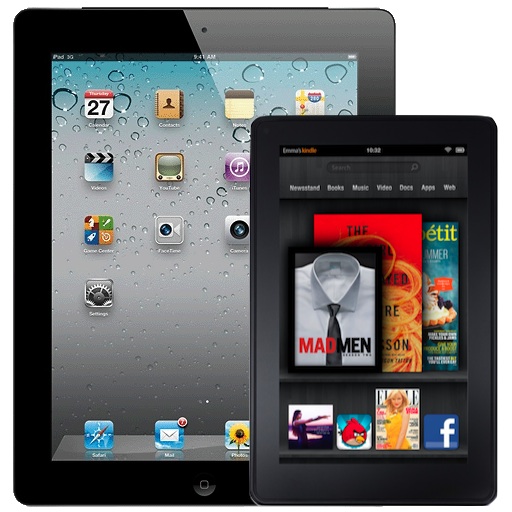Editorial: Apple's Post-PC vs Amazon's Post-Web computing

So Wired published an insightful interview with Amazon's Founder Jeff Bezos, discussing all things content consumption, cloud computing, consumer culture disruption and an odd side-track about his financial pledges into public space travel. The bit that formulated strong opinions amongst us is where he starts to discuss the Kindle Fire as more than just a competitor to the iPad.
 This pushes forward the two competing concepts of how computing should be done, aforementioned in the title. The Post-PC device, as predicted by Steve Jobs and the general trend of products from Apple is to be the new "car" when Personal Computers become "trucks." On it's lowest base: Post-PC devices rely on new input / output methods and allow a new population of non-expert users to use the product more cheaply and simply. There is a focus on the OS, the experience is centralised around the device, and content is downloaded to the device.
This pushes forward the two competing concepts of how computing should be done, aforementioned in the title. The Post-PC device, as predicted by Steve Jobs and the general trend of products from Apple is to be the new "car" when Personal Computers become "trucks." On it's lowest base: Post-PC devices rely on new input / output methods and allow a new population of non-expert users to use the product more cheaply and simply. There is a focus on the OS, the experience is centralised around the device, and content is downloaded to the device.
The Post-web device is something that is best demonstrated by the Kindle Fire: a culmination of the services that Jeff has accrued over his illustrious 15 years. Taking the concept of computing up into the cloud, streaming media, taking the focus off the OS and the hardware, instead forming a more literal definition of a window to your content.
This has presented two interesting concepts for the future of computing, both have a bright future for sure; but which would be of preference in a world where many only choose one?
Put simply, it's neither. It's more a combination of both.
The Post-PC era has it's benefits of maintaining comfortabilities such as the OS-centricity, the device itseld and content ownership, while moving the formula of computing forward; but it doesn't really exploit what can be done with other key technologies that the average consumer are getting to grips with (i.e. cloud computing).
Post-web fully utilises the cloud, not just to give someone a flash drive in the sky; but to provide you with your content without constraints of device or hard storage. This is both the ideal solution that it sounds like, and a hindrance to the adoption of the idea of taking your purchased items up into the cloud. You can't ignore the comfortabilities that come from the likes of physically storing this intangible content straight onto your device, and the focus on interplay between software and hardware.
So it seems logical to think that the meeting point between these two would be a reasonable move forward? The capabilities and content priorities unlocked by cloud computing, and the hardware precedence, the personal sense of ownership over said content of a post-PC device. Some may argue that this has already been solved: iOS devices and iCloud, the flash storage on the Kindle Fire. This is true to some extent; but both have priorities, the former to the device and the latter to the cloud. Take them both equally, and you have a solid foundation for the future of computing, at least for the foreseeable future.
Interview source: Wired

